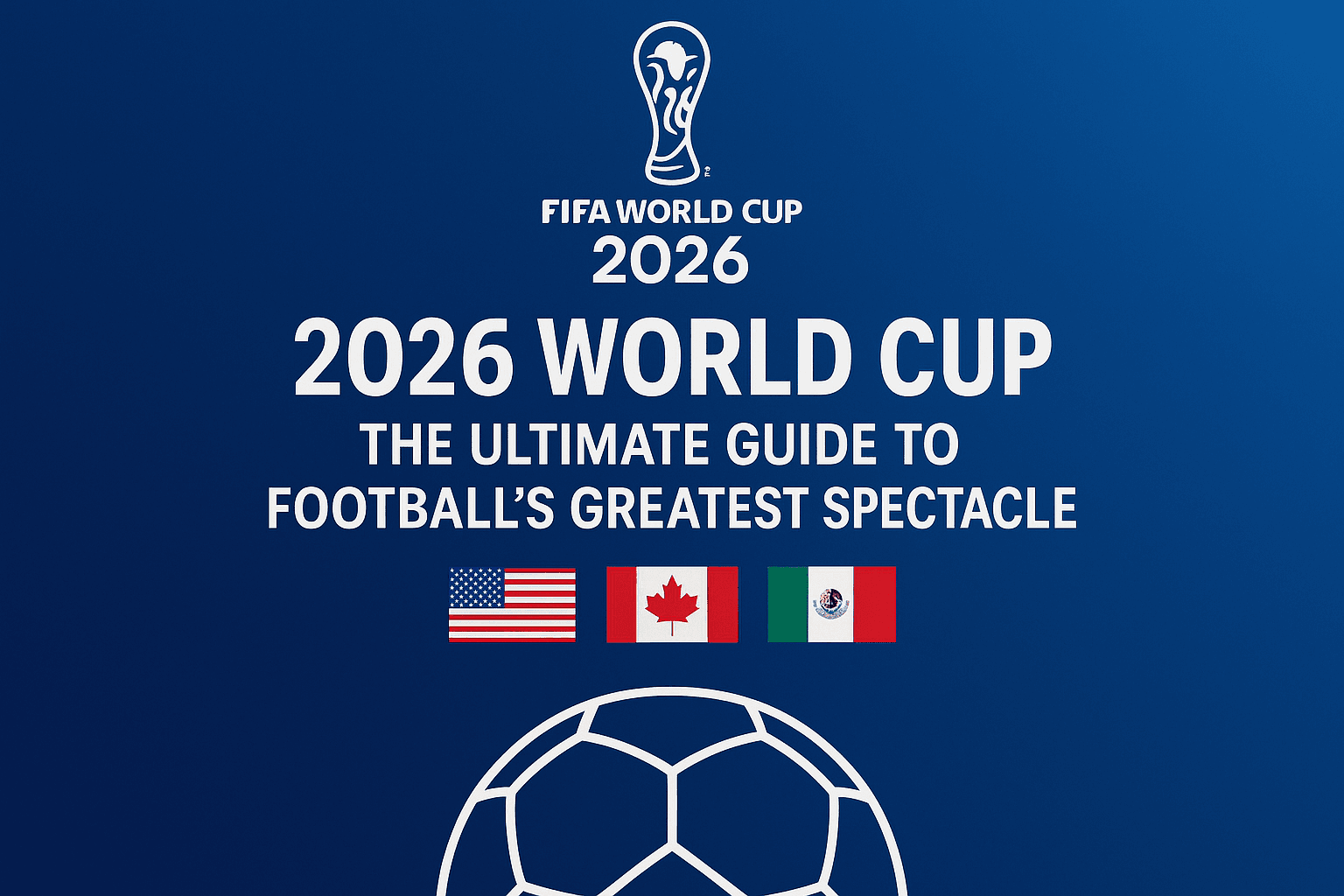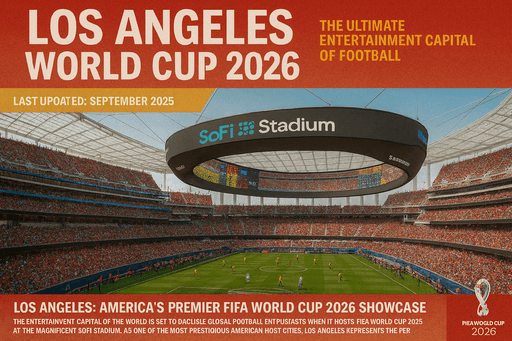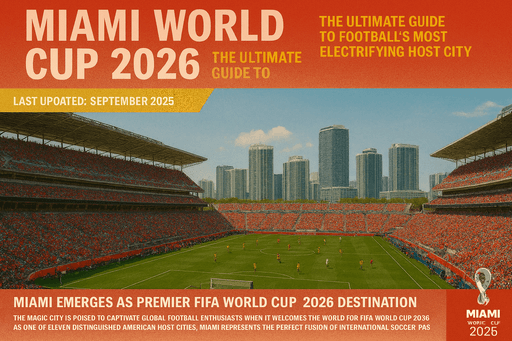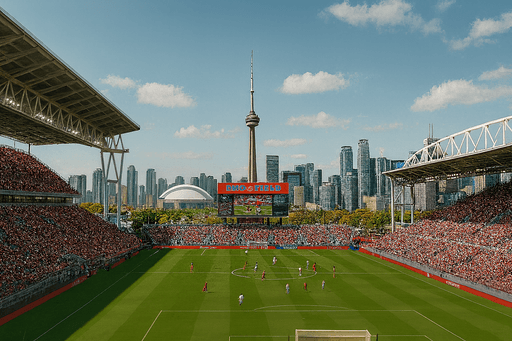Loading...
Getting ready for the World Cup action!
Getting ready for the World Cup action!
The FIFA World Cup 2026 is set to be the biggest and most ambitious tournament in football history. For the first time ever, three nations—the United States, Canada, and Mexico—will join forces to host the event, bringing together 48 teams in an expanded format that will span across 16 world-class cities. Fans can expect a record-breaking 104 matches over 39 days, cutting-edge stadium technology, and a unique cultural fusion as North America welcomes millions of visitors from around the globe. From the historic Estadio Azteca in Mexico City to the state-of-the-art SoFi Stadium in Los Angeles, the 2026 World Cup promises to be more than just a sporting spectacle—it will be a celebration of unity, diversity, and the beautiful game.

The FIFA World Cup 2026 promises to be the most spectacular and groundbreaking tournament in football history. For the first time ever, three nations will co-host this magnificent event, bringing together 48 teams in an expanded format that will captivate billions of fans worldwide. Here's everything you need to know about this historic tournament.
The 2026 World Cup marks a revolutionary moment in football history as the United States, Canada, and Mexico join forces to co-host the tournament. This "United Bid" creates the largest World Cup ever staged, spanning three countries and two time zones across North America.
Host Cities and Venues:
United States (11 cities):
Mexico (3 cities):
Canada (2 cities):
The 2026 World Cup will feature 48 teams for the first time, expanding from the traditional 32-team format. This expansion means more nations will have the opportunity to compete on football's biggest stage, bringing diverse cultures and playing styles together.
Important Format Change: Originally, FIFA planned to use 16 groups of 3 teams each, but in March 2023, they changed to 12 groups of 4 teams to address concerns about potential collusion in 3-team groups.
Tournament Structure:
Tournament Period: June 11 - July 19, 2026
Important Milestones:
The expanded format means more qualification spots are available for each confederation:
Note: The ".5" spots represent playoff positions between confederations
Record-Breaking Scale: This will be the largest World Cup in history, with more teams, more matches, and more host cities than ever before.
Cultural Fusion: The tri-nation hosting brings together diverse football cultures, from Mexico's passionate fan base to the United States' growing soccer enthusiasm and Canada's hockey-mad sports culture embracing the beautiful game.
Infrastructure Marvel: The tournament will utilize state-of-the-art stadiums, many of which are NFL venues that will be adapted for football, ensuring world-class facilities and massive capacities.
Technology Integration: Expect cutting-edge broadcast technology, enhanced fan experiences through digital platforms, and innovative stadium technologies to create an immersive experience for both attendees and viewers worldwide.
The 2026 World Cup is projected to generate unprecedented economic benefits across North America:
While qualification is still ongoing, several powerhouses are expected to make their mark:
Traditional Powerhouses:
Emerging Forces:
Mexico's Estadio Azteca will make history as the first stadium to host three World Cup finals (1970, 1986, and 2026), cementing its status as football's most iconic venue. The tournament will also mark significant milestones for both the United States and Canada in their football development journeys.
Visa and Travel: Fans will need to consider visa requirements for potentially multiple countries if following their teams across borders.
Transportation: Extensive planning is underway for inter-city transportation, including special charter flights and enhanced ground transportation networks.
Cultural Experiences: The tri-nation format offers fans unique opportunities to experience three distinct cultures, cuisines, and football traditions within a single tournament.
The 2026 World Cup represents more than just a football tournament—it's a celebration of unity, diversity, and the universal language of sport. As preparation intensifies and qualification campaigns heat up, the football world eagerly anticipates what promises to be the most spectacular World Cup in history.
Whether you're planning to attend matches, organizing viewing parties, or simply following from afar, the 2026 World Cup will undoubtedly create memories that will last a lifetime. The beautiful game is about to get even more beautiful across the landscapes of North America.
Stay tuned for updates on qualification results, final venue confirmations, and ticket information as we countdown to June 2026!



